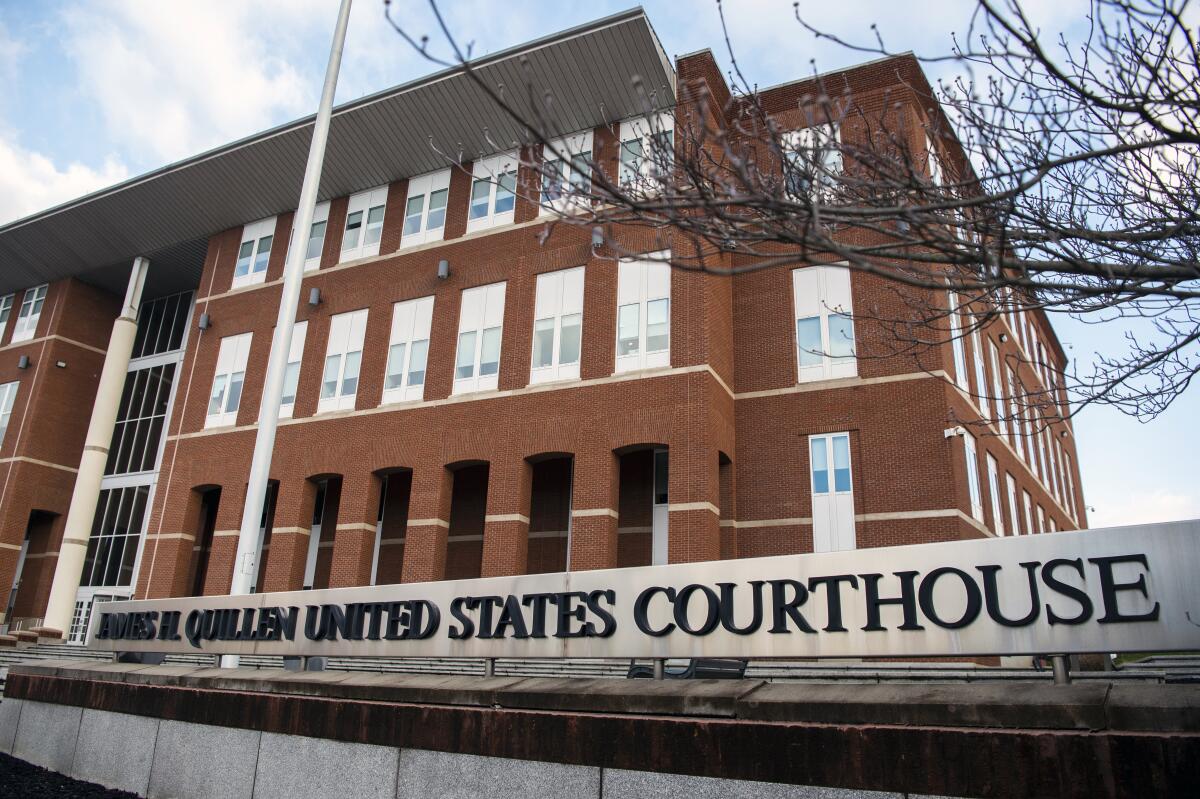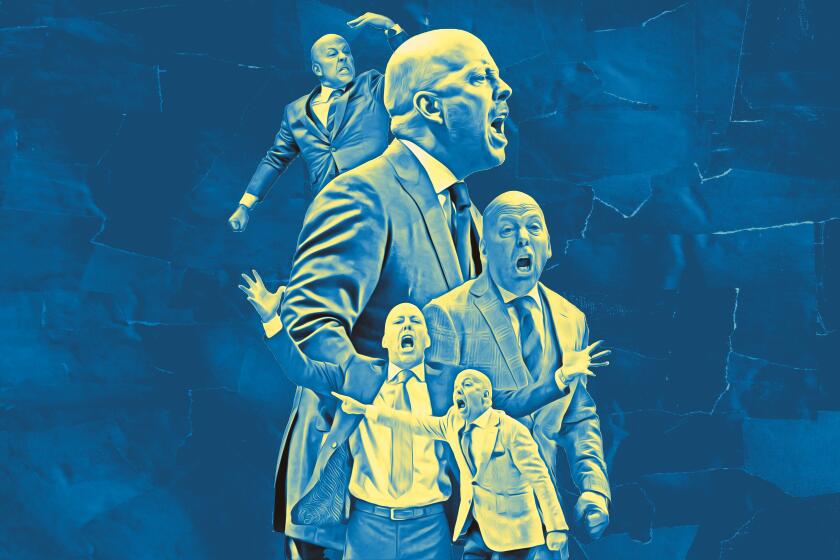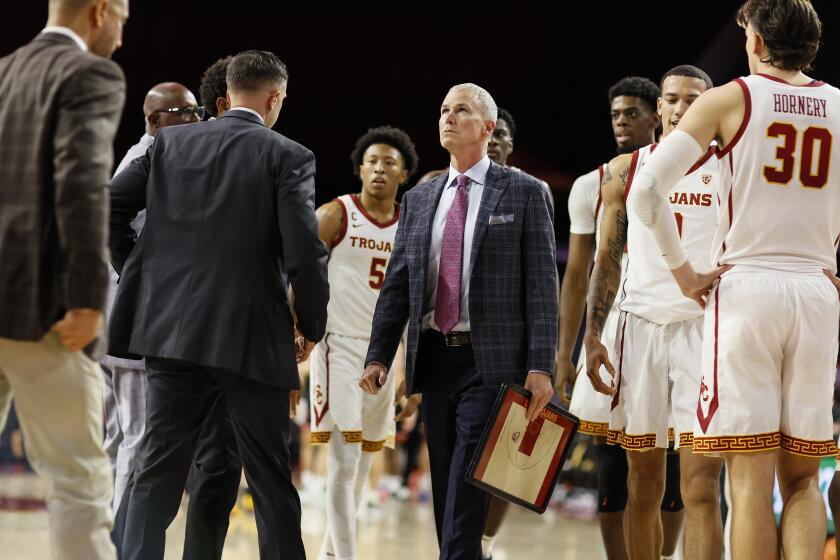Judge hands NCAA another loss, says NIL compensation rules likely violate antitrust law

- Share via
A federal judge on Friday barred the NCAA from enforcing its rules prohibiting name, image and likeness compensation from being used to recruit athletes, granting a request for a preliminary injunction from the states of Tennessee and Virginia in dealing another blow to the association’s ability to govern college sports.
The ruling by U.S. District Judge Clifton Corker in the Eastern District of Tennessee undercuts what has been a fundamental principle of the NCAA’s model of amateurism for decades: Third parties cannot pay recruits to attend a particular school.
“The NCAA’s prohibition likely violates federal antitrust law and ha(r)ms student-athletes,” Corker wrote in granting the injunction.
The plaintiffs’ arguments in asking for the injunction suggest that since the NCAA lifted its ban on athletes being permitted to cash in on their fame in 2021 recruits are already factoring in NIL opportunities when they choose a school.
Corker noted the NCAA’s contention that allowing so-called NIL collectives to offer deals to recruits would eviscerate the difference between college athletics and professional sports.
UCLA coach Mick Cronin says he ignores commentary about his penchant for yelling, instead focusing on his connection with his players.
“The proffered reasons are not persuasive procompetitive rationales,” the judge wrote. “While the NCAA permits student-athletes to profit from their NIL, it fails to show how the timing of when a student-athlete enters such an agreement would destroy the goal of preserving amateurism.”
The judge noted the NIL rules unchallenged by the lawsuit that link deals to athletic performance are “arguably more effective in preserving amateurism than the NIL-recruiting ban.”
The attorneys general of Tennessee and Virginia filed a federal lawsuit on Jan. 31 that challenged the NCAA’s NIL rules after it was revealed the University of Tennessee was under investigation by the association for potential infractions.
The states were denied a temporary restraining order by Corker, who said the plaintiffs could not prove that irreparable harm would be done to athletes of the NCAA rules were kept in place. But Corker made clear that he believed the states were likely to prevail with there case in the long run.
Tennessee Attorney General Jonathan Skrmetti said the injunction ensures athlete rights will be protected from the NCAA’s “illegal NIL-recruitment ban.” He said the bigger fight continues.
“We will litigate this case to the fullest extent necessary to ensure the NCAA’s monopoly cannot continue to harm Tennessee student-athletes,” Skrmetti said. “The NCAA is not above the law, and the law is on our side.”
The Trojans are the second-worst team in the Pac-12 in rebounding margin. They’re running out of time to address the issue with five regular-season games left.
The decision also is a victory for the University of Tennessee, which is facing an inquiry by the NCAA into possible recruiting violations that has been met with forceful push back from school officials.
The chancellor of the University of Tennessee revealed Jan. 30 in a scathing letter to the NCAA president that the association was alleging the school violated NIL rules through deals made between athletes and a booster-funded NIL collective that supports Volunteers athletes. Donde Plowman called it “intellectually dishonest” for NCAA staff to pursue infractions cases as if students have no NIL rights.
The NCAA has not officially accused Tennessee of violations with a notice of allegations.
The NCAA’s authority to regulate compensation for athletes has been under attack from a variety of avenues.
A National Labor Relations Board official ruled in early February that members of the Dartmouth men’s basketball team are employees of the school and could vote to form a union, which the players plan to do. The Tennessee case is one of at least six antitrust lawsuits the NCAA is defending as it also asks for antitrust protections from Congress.
More to Read
Go beyond the scoreboard
Get the latest on L.A.'s teams in the daily Sports Report newsletter.
You may occasionally receive promotional content from the Los Angeles Times.












